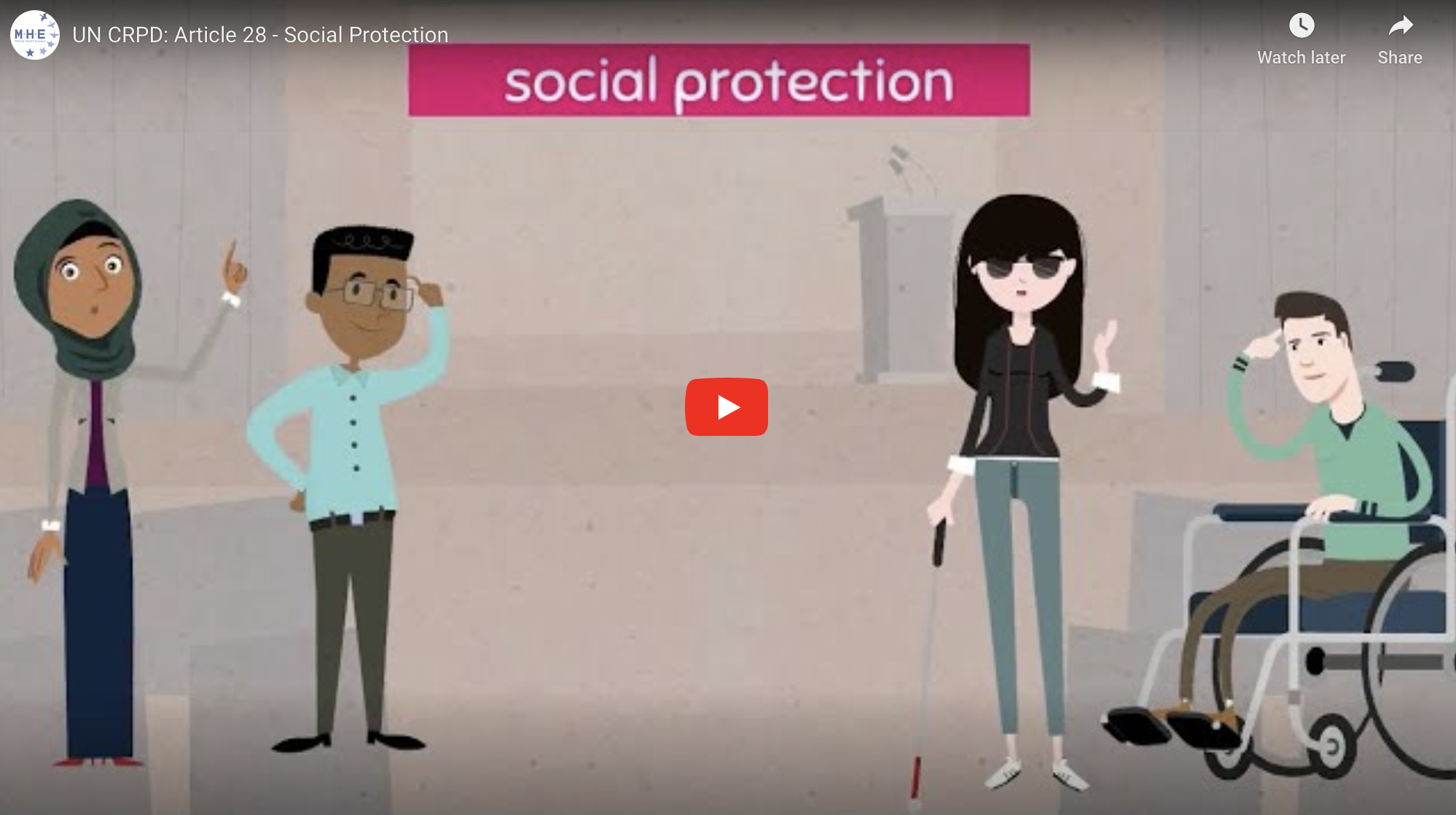New video explains the rights of people with psychosocial disabilities to social protection

To celebrate International Day of Persons with Disabilities, Mental Health Europe (MHE) is releasing a new video which explains the rights of people with disabilities, including psychosocial disabilities, to social protection and adequate standards of living.
Article 28 of the UN Convention on the Rights of Persons with Disabilities (UNCRPD) recognises that all persons with disabilities, including persons with psychosocial disabilities, have the right to social protection and adequate standards of living. They should not face discriminate on the basis of a disability.
Social protection is an essential human right. It consists of legislation, policies and programmes to reduce poverty and social exclusion. Social protection systems serve various purposes. They promote employment and tackle unemployment while providing assistance and support to people in need. Additionally, they respond to unforeseen events that have negative consequences on a person’s life. In times of crisis, like the current COVID-19 pandemic, social protection systems provide support for persons with (psychosocial) disabilities.
People with psychosocial disabilities have been affected by the pandemic more than others, facing exclusion and poverty as a result. One reason for the disproportion is the high number of infections and deaths of people living in institutions, sometimes without people’s consent. We hope this video draws attention to the need to protect the rights and ensure the wellbeing of people with disabilities.
The video belongs to MHE’s animated video series, in which we explain the UN CRPD in relation to the enforcement of rights of people with psychosocial disability. You can watch the videos on Article 11, Article 12, Article 27, Article 19, Article 29 of the UNCRPD, as well as the video explaining the overall concept of the paradigm shift required by the Convention.
Stay connected
Get our latest news, personal stories, research articles, and job opportunities.